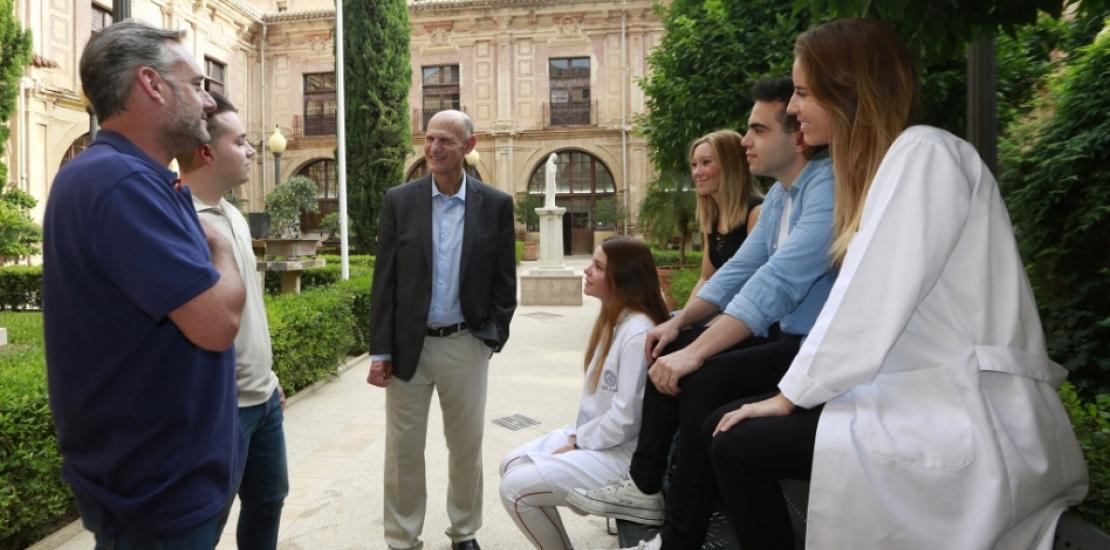We need young scientists
Juan Carlos Izpisua, professor of Developmental Biology at the UCAM encourages UCAM students to do research
Juan Carlos Izpisua is one of the Spanish scientists with greatest international recognition. During this week he has been at the UCAM and has had the chance to share impressions with some students of the Bachelor’s Degree in Pharmacy, to whom he always tries to instil his passions for science and research. In a talk with students of Medicine in 2017 he insisted on this idea: “We need young scientists who bring to the clinic the knowledge we acquire in the laboratory”.
Doctor Rafael Matesanz, creator of the National Transplant Organisation (awarded the Prince of Asturias award for International Cooperation), recently assured that doctor Juan Carlos Izpisua “is a universal scientist; our main scientist at the moment”.
The international team of researchers led by the professor extraordinary of Developmental Biology at the UCAM and Director of the Gene Expression Laboratory at the Salk Institute (USA) puts all his talent and dedication to finding a solution to hitherto incurable diseases that are related to cancer, diabetes, ageing or rare diseases (progeria, retinitis pigmentosa, etc.).
The most prestigious scientific journals (Nature, Cell or Science) are disseminating its achievements, aimed at generating human organs for transplants, reversing ageing by reducing associated diseases, curing rare diseases, generating organs and tissue, curing multiple sclerosis or achieving muscle regeneration.
For these researches to be carried out with continuity, the Primafrio Foundation from Murcia decided to collaborate through patronage with the Catholic University of Murcia, an institution that for years has been supporting Dr. Izpisua's research with human resources (researchers) and economic ones. This initiative is the result of a shared conviction: to believe in science as a tool for the aid and progress of humanity, and it pursues a common goal: to contribute so that these advances can bear fruits and reach the entire society, including the most vulnerable people.




